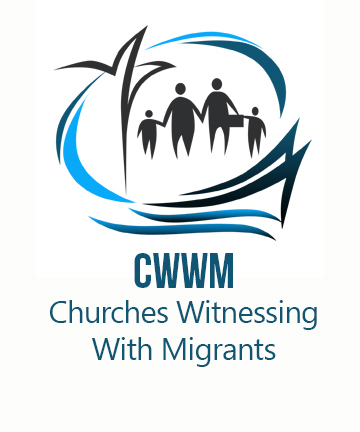Truth is lacking, and whoever turns from evil is despoiled. The Lord saw it, and it displeased him that there was no justice. Isaiah 59:15
Recent violence in Myanmar has seen security forces torch and raze to the ground whole Rohingya villages, including the murder of men, women and children who are fleeing. More than 600,000 Rohingyas have now fled over the border to neighboring Bangladesh. The targeting of Rohingyas by state forces in Myanmar, due to their religion and ethnicity, has been so systematic that a growing international consensus suggests that the acts of the state forces amount to genocide and ethnic cleansing.
At the hands of the Myanmar government and military, the Rohingya have experienced a long history of brutal discrimination, denial of basic human rights, limitations on the freedom of movement, lack of access to education and basic services, routine forced labor, land confiscation and forced relocation.
The Myanmar government has attempted to deny the very existence of the Rohingya. The legitimate claim of the Rohingya people being part of the Myanmar nation, including claims to their ancestral lands within Myanmar have been dismissed by the state. The use of the word “Rohingya” has been banned in the country. For the Myanmar government, the Rohingya are aliens who have no legitimate claim to citizenship.
The Rohingya crisis is one among many where people are forced to move. Something particular to the Rohingya is that in their country of origin they are made invisible and rendered stateless. These are complicated even more in the countries of transit.
The Churches Witnessing With Migrant (CWWM) affirms that all human rights are rights of migrants and refugees. We may not all be migrants and refugees, but we are all human beings laying claim to the same human rights that are equally the rights of migrants and refugees. The safeguards and protections we afford to refugees, migrants and displaced peoples speak to that common dignity in humanity that human rights are founded on[1].
Pope Francis stressed recently that Rohingyas, as all of humanity, were created in the image of God. For CWWM, migrants and refugees are strangers waiting to be welcomed with hospitality and into our neighborhood. In the compassion of Jesus, we cannot rest until we turn strangers into neighbors and friends. Our commitment is to the abundant and sustainable life which is God’s purpose for all[2].
CWWM calls on the global community, especially the churches, to show compassion and to contribute to the humanitarian effort to meet the immediate needs of the Rohingya people.
We call on international humanitarian organizations and churches to strengthen their commitment to provide immediate relief and rehabilitation while their status from a situation of statelessness to refugee classification is being worked out by international refugee agencies.
Meantime, solidarity, support and encouragement are due to the countries of transit and their peoples as they host the dislocated Rohingyas.
CWWM is deeply concerned about the recently brokered deal for the repatriation of displaced Rohingyas from Bangladesh back to Myanmar. We are concerned that despite the agreement, the government of Myanmar will not welcome back the Rohingyas as legitimate Myanmar citizens.
In the brutal violence that preceded their fleeing into Bangladesh, many Rohingyas were not able to retain identification documents. Should repatriation occur, there is legitimate concern that returning Rohingya refugees will not be allowed to return to their own homes and instead relocated into marginal and uninhabitable locations.
We also call on the community of nations to sanction Myanmar through available international mechanisms under the auspices of the United Nations so that this scourge of forced displacement and ethnic cleansing will end, and the system of apartheid that the government of Myanmar has established will be dismantled before it gets worse.
The ongoing consultations towards a Global Compact for Safe, Orderly, and Regular Migration is one important venue for all countries and peoples of the world to address the global crisis of forced movement of migrants and refugees.
We must reach out to UN member states and related multilateral bodies negotiating the compact’s text to ensure that the situation of statelessness and forced movement due to religious persecution and ethnic cleansing that the Rohingya unjustly suffer are sufficiently covered.
The recently-announced decision by the United States government to withdraw from the Global Compact on Migration negotiating process alarms us. The US role in the negotiations is crucial given its policies and perspectives that bear heavily on the situation of migrants and refugees.
We urge all UN member states and the international community to be steadfast in their commitment to lift up and better the lives and conditions of migrants and refugees.
Let us thus work together to uphold their God-given dignity and worth by ensuring that their human rights are respected and protected.
As we celebrate the season of the Advent, let us recall the ministry of Jesus to “preach the good news to the poor, give sight to the blind, set the captives free” (Luke 4:18) by being in solidarity with the Rohingyas.
23 December 2017
_____________________________ ______________________________ ______________________________ __
CHURCHES WITNESSING WITH MIGRANTS (CWWM) is an international tripartite network of grassroots migrants, migrant-serving groups and organizations, and varied religious and faith-based institutions dedicated to the proposition that all human beings have inherent, inviolable human dignity and protected human rights. Forced migration is a violation of human rights and a denial of the inherent dignity of migrants, refugees and all uprooted peoples. CWWM is committed to eliminating the conditions that create forced and enforced migration, especially the root causes and historic injustices, and their contemporary manifestations, that perpetuate such conditions.
[1]Speaking Our Truths as Migrants and Refugees: Claiming and Mobilizing Our Narratives to Address Forced Migration and Enforced Movement, Dhaka Assertions (2016), in Turning Strangers Into Friends: Hospitality, Mercy, Justice—A Workbook on the Framework Documents of the Churches Witnessing With Migrants (CWWM), Bautista, Liberato, C. (ed.), National Council of Churches in the Philippines, Quezon City, 2017.

